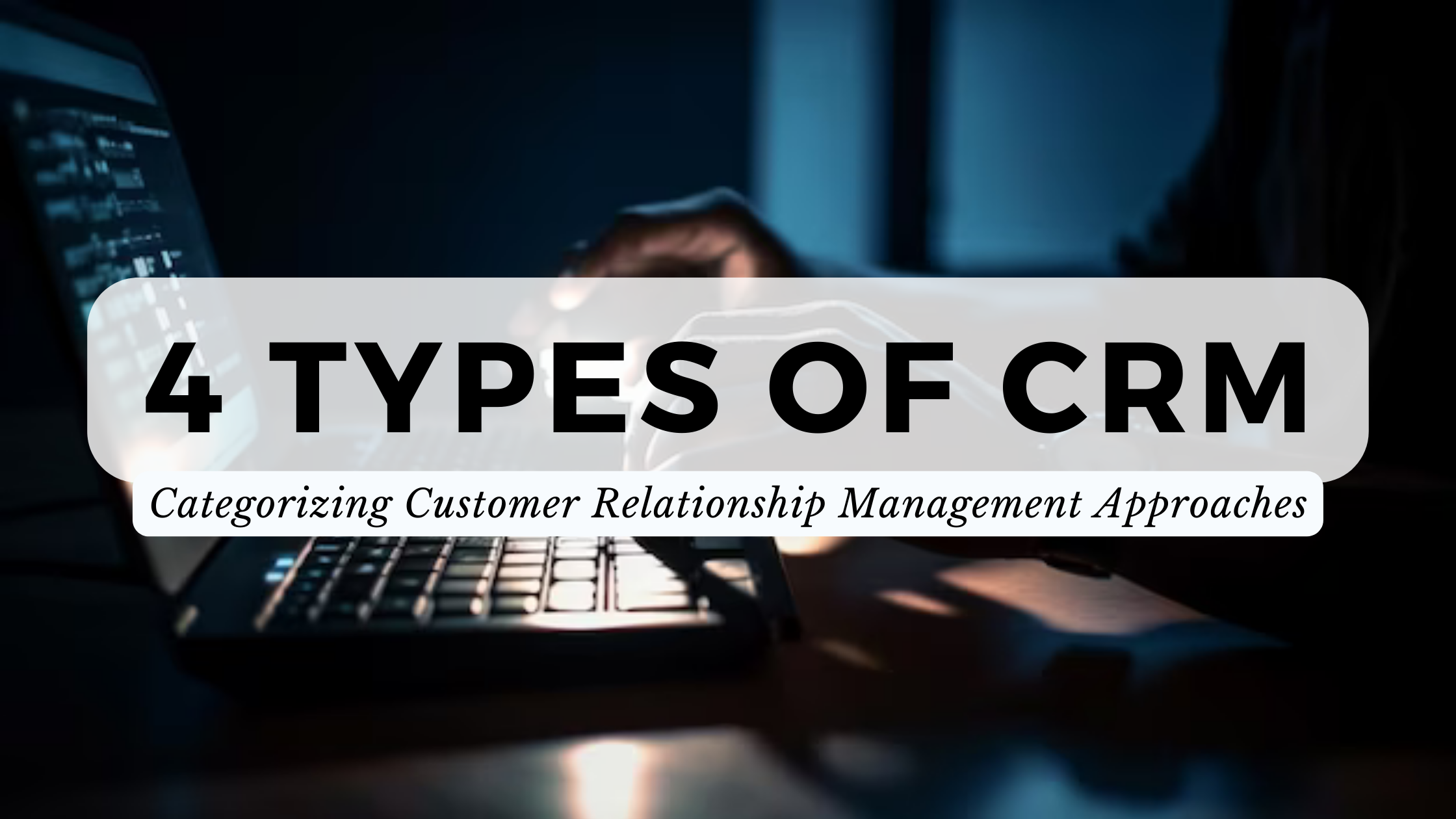4 Types of CRM: Categorizing Customer Relationship Management Approaches
- Proposal Software Customer Relationship Management


4 Types of CRM: Categorizing Customer Relationship Management Approaches
Customer Relationship Management (CRM) is a strategic approach that companies use to manage and analyze customer interactions and data throughout the customer lifecycle1. The goal is to improve business relationships with customers, assist in customer retention, and drive sales growth1. There are four classic types of CRM systems that are generally agreed upon23:
1. Operational CRM
Operational CRM provides customer service or marketing support through automation and streamlining business processes2. They capture customer interactions and track lead qualification and action marketing automation2. Operational CRMs collect data from different marketing sources like social media, emails, or website visitors2. An example of an operational CRM is Spotio2.
2. Analytical CRM
Analytical CRMs use algorithms and machine learning to analyze the data they gather to create optimal customer targeting2. Analytical CRMs provide insight into data and then understand and anticipate the customer’s needs that humans would otherwise miss2. An example of an analytical CRM is OLAP2.
3. Collaborative CRM
Collaborative CRMs are mainly for customer relationship management tracking2. These CRM solutions allow you to manage and track interactions with customers who contact your company via resources like social media, emails, and websites2. An example of a collaborative CRM is Dynamics 365 Sales2.
4. Strategic CRM
Business models that focus on repeat and loyal customer bases use strategic CRMs to learn more about their customers2. They then use this knowledge to build and maintain long-term relationships2. Like the other types, strategic CRMs collect, analyze, segregate, and apply customer information and market trends to develop better value propositions2.
Relevant SaaS Products for the SaaS Subscription Stack
Here are some relevant SaaS products that can be beneficial for the SaaS subscription stack:
- Whop4: A top-rated SaaS subscription management software. Official Website
- Stripe Billing5: Known as a payment provider, Stripe also offers subscription management features. Official Website
- Chargebee6: A globally used SaaS subscription management software. Official Website
- Zuora7: A comprehensive subscription management platform. Official Website
- Pabbly8: A subscription management software that offers a range of features. Official Website
Conclusion
CRM systems are crucial for managing customer relationships and driving business growth. Different types of CRM systems cater to various aspects of customer relationship management, including operational, analytical, collaborative, and strategic. Additionally, there are numerous SaaS products available that can enhance the functionality of a CRM system, particularly in the realm of subscription management. By leveraging these tools, businesses can create a robust and efficient customer relationship management system.








